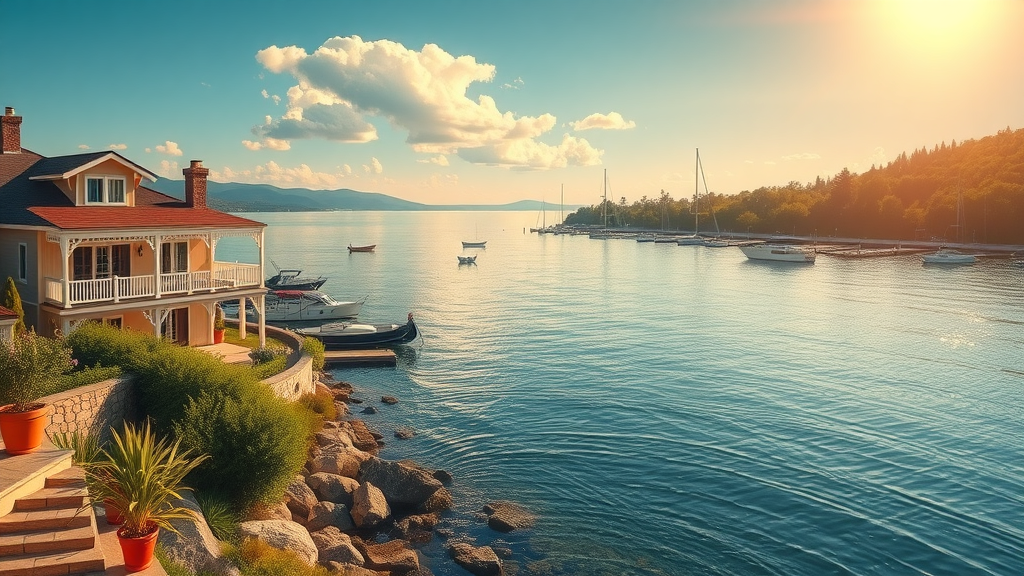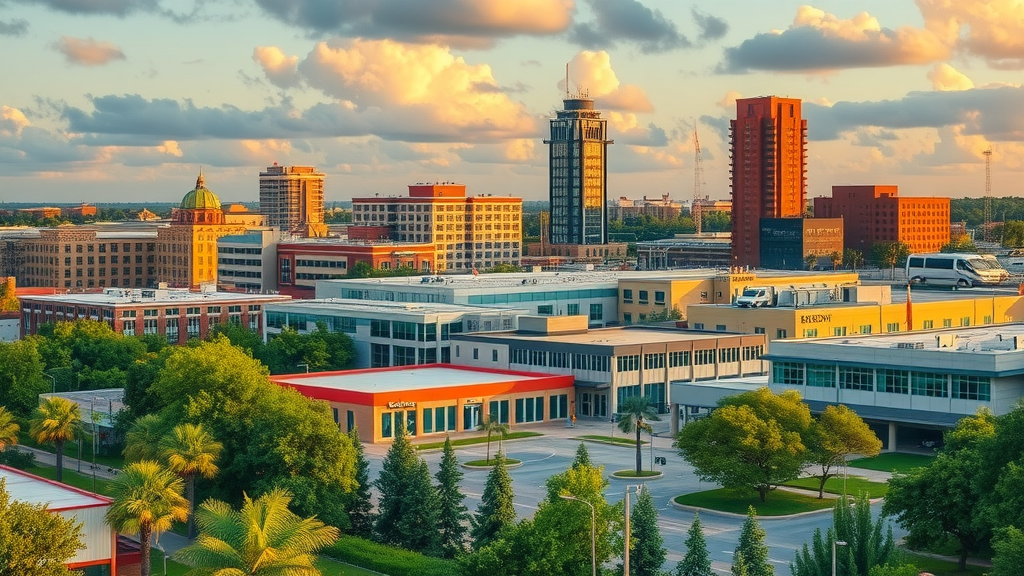Did you know that transforming your garden into a lush tropical retreat not only enhances its beauty but can also boost curb appeal by up to 20%? In this guide, we’ll explore how you can create a stunning tropical landscape that serves as your own personal oasis. From vibrant colors and lush foliage to soothing water features, discover the essential elements that can turn your backyard into a tropical paradise.
Unveiling the Magic of Tropical Landscapes
The appeal of a
tropical landscape
lies in its ability to transport you to faraway paradises, evoking the tranquility of exotic locales. By incorporating palm trees, lush green foliage, and vibrant flowers, you can mimic the enchanting feel of a tropical garden right in your own yard. But what truly defines a tropical landscape?
Definition and Characteristics of Tropical Landscape
A
tropical landscape
is characterized by its exuberant and diverse plant life, with vegetation thriving in warm, humid climates. These landscapes typically feature plants with broad leaves, brilliant blooms in hues of hot pink, yellow canna, and pops of other vivid colors. Essential elements include dense, layered greenery, providing a rich tapestry of foliage that invites butterflies and hummingbirds.
Famous for creating a lush, immersive environment, tropical landscapes often include water features that introduce the calming sounds of running water. These features not only provide a serene soundscape but also help maintain the tropical ecosystem by supporting a humid microclimate.

The Essentials of a Tropical Garden
“Transform your garden into a paradise with vibrant colors and lush foliage.”
A successful tropical garden thrives on a deliberate selection of plants and complementary design features. Key to this transformation is choosing
tropical plants
that can flourish in your local climate. Think of palms, ferns, and colorful foliage plants like sweet caroline and prince tut as the building blocks of your tropical oasis. Additionally, consider integrating garden beds to add varied textures and visual interest, creating garden zones filled with essential elements to guide the eye and soothe your senses.
Designing a Tropical Paradise: Essential Elements
When embarking on your tropical garden design journey, integrating certain essential elements will highlight the uniqueness of your landscape. These elements include water features, diverse plantings, and vibrant flowers within strategic
landscape design
.
Integrating Water Features for Serenity
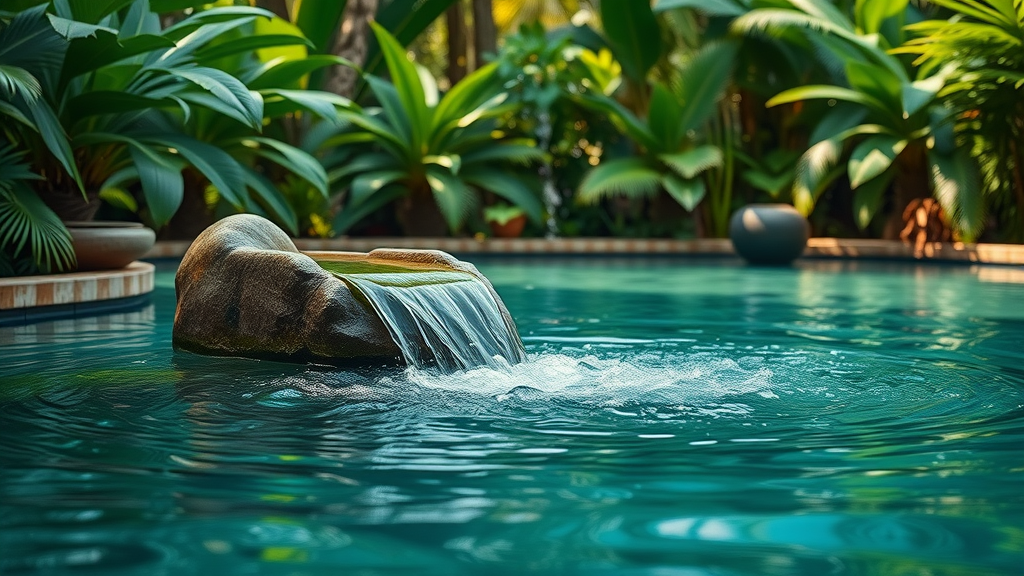
Water features undeniably enhance a tropical environment’s tranquility and charm. The presence of running water creates a calming auditory experience, turning your garden into a peaceful retreat. Consider adding serene ponds, intricate waterfalls, or decorative fountains that blend seamlessly with the surrounding lush green—a
water feature
that doubles as an aesthetic focal point while keeping the atmosphere cool and humid.
Choosing the Right Tropical Plants
Central to any tropical landscape are the
tropical plants
themselves. Selecting species that can adapt to the local climate while offering a tropical feel is crucial. Species such as palms, ferns, and bold-leaved tropical plant varieties like the stunning ‘Proven Winners’ range will provide the exotic allure you desire. These plants, alongside thoughtfully arranged garden beds, create depth, sustainability, and vibrancy, ensuring a continuous display of natural beauty through different seasons.
Incorporating Vibrant Flowers and Foliage
The vibrant colors of tropical flowers are quintessential to capturing the essence of a tropical paradise. Integrate
vibrant flowers
that pop against lush foliage to create dynamic visual interest. Flowers such as hibiscus, bird of paradise, and bromeliads provide eye-catching blooms that attract butterflies and hummingbirds, adding an extra layer of lively interaction within your garden.
Achieving the Perfect Garden Design
A cohesive design is critical to achieving the perfect
garden design
for your tropical landscape. Balance is essential, with the arrangement of plants and features playing a pivotal role in visual harmony.
Creating a Balance with Landscape Design
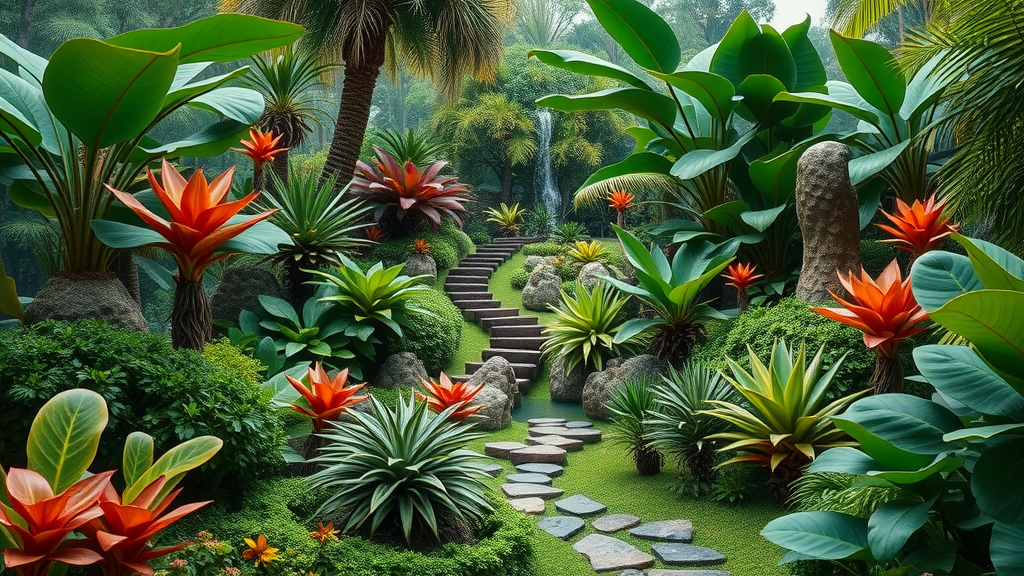
A key tenet of effective landscape design within a tropical layout is creating a balance between various components. This involves considering the size, form, and color of plants alongside structural elements like pathways and water features. By mixing heights, textures, and colors thoughtfully, you can produce a layered effect that enhances the garden’s depth and allure.
Enhancing with Tropical Garden Design
Enhancements within
tropical garden design
involve thoughtful additions that further emphasize the garden’s tropical vibe. Consider incorporating features such as pergolas wrapped in climbing vines, pathways made of natural stone, and accent lighting to highlight key areas of your garden. These enhancements elevate the aesthetic appeal and create specific areas for relaxation and enjoyment.
How to Make Your Backyard Look Tropical
This section provides practical advice on morphing your backyard into a tropical haven, offering inspiration from global gardens and maintenance tips. For more ideas on transforming your space, check out
7 Affordable Ideas to Turn Your Backyard into a Relaxing Oasis
.
Step-by-step Guide to a Tropical Transformation
Transforming your backyard into a tropical oasis involves several key steps. Begin by evaluating your space and deciding on focal points for water features and garden beds. Introduce
tropical plants
, like palms and large leaf varieties, for a tropical feel. Layout paths using natural materials to guide movement through the garden and incorporate seating areas for relaxation. Finally, maintain your garden regularly to ensure ongoing vibrancy and health.
Inspiration from Global Tropical Gardens
Gain inspiration from renowned tropical gardens around the world. From the spectacular diversity of Singapore’s Botanic Gardens to Hawaii’s lush landscapes, observe how these gardens utilize local flora and design principles to create stunning cultural landscapes. Incorporate global techniques for layering plants, using ornamental elements, and forming microclimates suitable for tropical growth.
Maintaining Your Tropical Paradise
Regular maintenance is essential for any thriving
tropical paradise
. Ensure plants receive adequate water and nutrients, particularly in the hotter seasons. Prune regularly to manage growth, and address pest issues promptly to keep your garden lush and healthy. Routine upkeep not only preserves the landscape’s aesthetic but also enhances the longevity of your investment.
Exploring 15 Types of Landscapes
| Landscape Type | Key Features |
|---|---|
| Desert | Xerophytic plants, dry conditions |
| Tropical | Lush greenery, high humidity |
| Mountain | Sloped terrain, hardy plants |
| Coastal | Salt-tolerant vegetation, sandy soils |

Elements of a Perfect Tropical Landscape
Explore critical elements that contribute to the perfection of a
tropical landscape
and how they interconnect to form a cohesive environment.
The Role of Tropical Plants in Design
Tropical plants
serve as the backbone of any tropical landscape design, offering both structure and beauty. They form the verdant basis, supporting the design’s richness through textured leaves and vibrant growth forms. Palms, ferns, and flowering varieties convey the tropical feel, while functioning ecologically by providing shade, retaining moisture, and fostering diverse wildlife habitats.
Bringing Luxury with Water Features
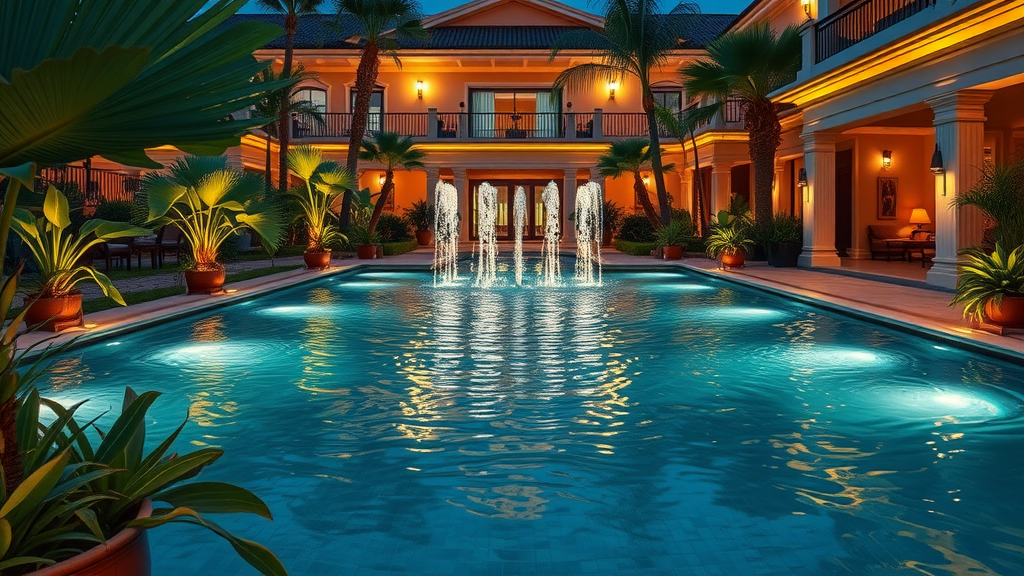
No tropical landscape is complete without luxurious
water features
. Introducing water as a central theme evokes a sense of refinement and tranquility that’s hard to replicate. Sophisticated ponds, elegant waterfalls, and artful water sculptures invite elegance and provide a soothing challenge to the senses. The interplay of light on water’s reflective surfaces can further elevate the garden’s ambiance.
Utilizing Landscape Design Innovations
- Vertical gardens and living walls
- Smart irrigation systems
- Sustainable and recycled materials
Innovative
landscape design
techniques are essential for achieving a sustainable tropical garden. By leveraging trends like vertical gardens and smart irrigation, you can maintain a beautiful yet efficient garden. Adoption of recycled materials not only supports eco-friendly practices but also adds unique touches that personalize your tropical sanctuary.
Frequently Asked Questions on Tropical Landscapes
What is a tropical landscape?
A
tropical landscape
is an environment designed to replicate the natural beauty and lushness of tropical regions. It often features dense vegetation, vibrant colors, water features, and a high degree of humidity to support the growth of tropical plants like palm trees and hibiscus.
How can I make my backyard look tropical?
To give your backyard a
tropical feel
, start by selecting appropriate tropical plants that will thrive in your climate. Integrate features like water elements and vibrant flowers to enhance the environment. Think creatively about garden design—use raised beds, create layers and work with color and texture for dynamic visual interest. For more inspiration, explore
Florida Natural Remedies You Can Grow in Your Backyard
.
What are the 15 types of landscapes?
Landscapes can range from tropical to desert, each with intrinsic features like climate, vegetation, and terrain that define their uniqueness. Main types include tropical, mountain, coastal, desert, urban, rural, and others, each contributing distinctive character to their regions.
What are the elements of tropical landscape?
The fundamental elements of a
tropical landscape
include lush greenery, vibrant flowers, and integrated water features. These components work together to provide a serene, visually engaging, and ecologically sustainable environment that supports diverse flora and fauna.
Start Your Journey to a Tropical Sanctuary
It’s time to create the tropical landscape of your dreams. Imagine the serenity and beauty of a lush, vibrant garden that invites relaxation and refreshment.
Contact us today
to design your dream tropical landscape!



